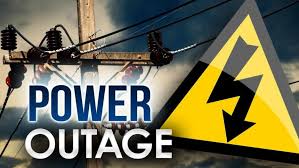In a staggering revelation, maritime lawyer Barrister Osuala Nwagbara disclosed that investors, known as concessionaires, are hemorrhaging over N100 billion annually due to inadequate power supply crippling the nation’s ports.
The relentless struggle to keep operations running has pushed these investors into a financial abyss.
The alarming situation, exacerbated by erratic power supply, has led to soaring costs of diesel for the concessionaires, with each terminal operator in Lagos consuming up to 800 liters daily. The estimated annual diesel expense for these operators alone is an astronomical N50 billion.
This dire scenario extends to ports in Onne, Calabar, Warri, and Port Harcourt, all facing exorbitant costs, making the overall cost of doing business at Nigeria’s seaports alarmingly high.
Barrister Nwagbara, addressing the Minister of Marine and Blue Economy, Adegboyega Oyetola, underscored the urgent need for innovative power supply solutions to optimize the efficiency of Nigerian ports.
Lamenting that Nigerian ports rank among the world’s most expensive, he identified the lack of reliable power as a pivotal factor hindering fair pricing and inflating charges associated with cargo clearance.
In a letter dated February 25, 2024, addressed to the Federal Government through the Minister of Marine/Blue Economy, Barrister Nwagbara reiterated that power supply has been an enduring issue predating the commercialization of the nation’s seaports.
The concessioning arrangement of 2005/2006, which transferred cargo handling operations to private investors, failed to resolve the persistent power challenges.
To break this impasse, the maritime lawyer proposed issuing licenses to reputable power operators and involving the Electricity Regulatory Commission.
He advocated for the establishment of independent power plants using cutting-edge technology to serve port areas, thereby reducing the crippling cost of doing business.
Highlighting the urgent need for renewal of power concession/lease agreements, Nwagbara urged the Nigerian government to consider engaging independent power companies to build advanced power plants, addressing the core reason behind the high operational costs in Nigerian ports.
He underscored that the power predicament is well-known, emphasizing the necessity to prioritize public interests over individual concerns for the greater benefit of the nation.
Nwagbara concluded by asserting the pivotal role of seaports in contributing substantially to the GDP of littoral states globally.
He emphasized that for Nigerian ports to make a meaningful contribution, they must be efficient, cost-friendly, safe, secure, and accessible.
The maritime lawyer pledged ongoing recommendations for the development of Nigeria’s marine and blue economy, addressing the multifaceted challenges faced by the nation’s vital ports.
Do you want to share a story with us? Do you want to advertise with us? Do you need publicity for a product, service, or event? Contact us on WhatsApp +2348183319097 Email: platformtimes@gmail.com
We are committed to impactful investigative journalism for human interest and social justice. Your donation will help us tell more stories. Kindly donate any amount HERE




